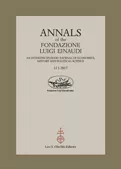The paper traces the developments of policies and institutions for the EMU in the past decades, linking them to evolutions of the consensus in macroeconomics. The EMU institutions were designed in the 1990s, when the consensus posited a very limited role for the government in business cycles regulation and in fostering growth. Accordingly, the burden of adjustment in the EMU in its current form is on market forces. The paper shows how the global financial crisis moved the cursor back towards an increased role for macroeconomic (most notably fiscal) policy; nevertheless, during the sovereign debt crisis Europe has been impervious to empirical and theoretical developments, remaining tangled in self-defeating austerity policies. The Covid crisis marked a turning point, with EU governments and institutions reacting boldly and quickly. The paper concludes investigating possible paths for reform, capable of adapting the European institutions to the newfound centrality of macroeconomic policies.



